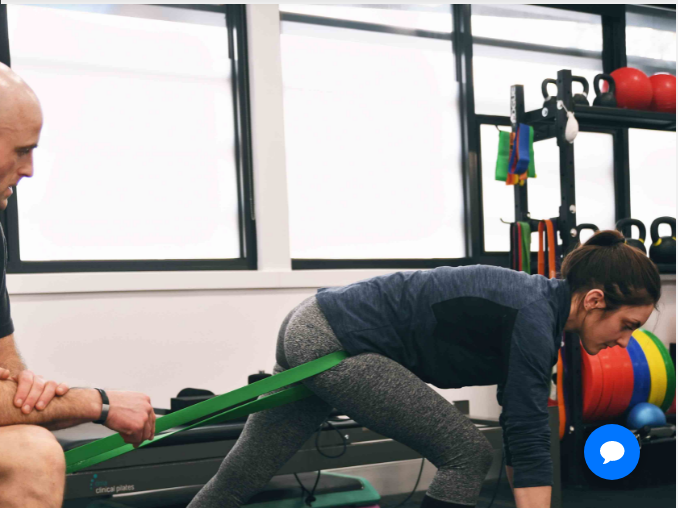If youíve never visited a physio before and are unsure whether itís the right allied health professional for your concerns, continue reading to learn a little more about their services and areas of expertise.
Unsure whatís wrong but you just feel thereís something off with your bones, muscles, and joints? A physio in Mooroolbark may be able to provide the answers.
What does a physiotherapist treat?
People often associate physiotherapy with sporting injuries. While a physiotherapist is an important member of any elite sporting team, their skills means they can treat a wide range of conditions not typically associated with high-performance sports.
You might visit a physiotherapist to discuss any of the following conditions:
- Aches, sprains, bone breaks, and other injuries
- Chronic pain conditions, such as arthritis and fibromyalgia
- Neurological conditions, such as Parkinsonís disease and multiple sclerosis
- Rehabilitation post-surgery (for injuries and incidents like a heart attack or stroke)
- Congenital disorders that affect movement, such as cerebral palsy
- Pre and post natal conditions
Physiotherapists can also help patients prevent future injuries by providing strength and conditioning advice and improving sporting technique.
Are all physiotherapists the same?
The short answer to this question is: no. While all physiotherapists will be able to treat common conditions ó sprained joints and strained muscles ó some have certain specialties.
A sports physiotherapist, for example, will primarily treat patients who have developed injuries from exercise. These patients donít have to be high-performing athletes; sports physiotherapists also help amateurs improve their technique and conditioning to prevent future injuries from occurring.

A neuro physiotherapist, on the other hand, will provide care to patients diagnosed with neurological conditions that affect their movement. Other common types of physios include:
- Geriatric physiotherapist
- Paediatric physiotherapist
- Cardio-respiratory physiotherapist
- Womenís health physiotherapist
Do I need a referral to book an appointment?
While each practice is different, generally speaking you will not need a doctorís referral to book an appointment with a physiotherapist, particularly if you are suffering from a common injury or condition. Some specialist physiotherapists may require a referral.
What should I expect in my appointment?
If youíve never seen a physiotherapist before, you might be wondering what to expect in your first appointment.
A physiotherapist will aim to get to the root cause of your problem. To start with, they will ask you a series of questions about the pain you are experiencing, how long you have been suffering from this problem, and any other pre-existing health conditions you have that may be contributing to the issue. To provide an accurate diagnosis, they may schedule a formal screening test, like an x-ray or an MRI. Alternatively, they may be able to determine what is wrong through manual manipulation of the affected area.
Once a diagnosis has been reached, the physiotherapist will be able to recommend an appropriate course of treatment. You may need to book follow up appointments to monitor the issue and confirm your situation is improving.
What will my treatment involve?
The answer to this question really depends on the issue at hand.
For some patients, a physio may simply recommend a period of rest to allow your injury time to heal. Others may follow a prescribed exercise schedule to strengthen bones and muscles.
If youíre suffering from any type of pain that is interfering with your daily life, a physiotherapist might recommend specific treatment strategies, such as dry needling or shockwave therapy.
The best type of physio is one that works with you to ensure your treatment is tailored and genuinely useful for your recovery.
What should I wear to an appointment?
As part of your appointment, your physiotherapist might need to observe your exercise technique or get you up on your feet to show you how to perform certain movements. As such, itís important that you wear comfortable clothes that you can easily move around in.
Will I need to book multiple appointments?
If youíre suffering from a specific injury ó a strained hamstring, for example ó you will likely require at least one follow up appointment so that your physio can confirm you are recovering.
Some patients, particularly those suffering from a chronic condition, visit their physio on a regular basis to receive rehabilitation and pain-relief treatment.
It really depends on your particular condition and situation.
How do I find a good physiotherapist?
With so many physiotherapists out there, how can you be sure that youíre working with the best?
To start with, always opt for a physio in Mooroolbark that offers a wide variety of services. Itís ideal if your physio can both diagnose your injury and offer multiple strategies for relieving symptoms, such as shockwave therapy, dry needling, myotherapy, and more.
You can start your hunt by asking family and friends for recommendations or searching for a ďphysio near meĒ online.






